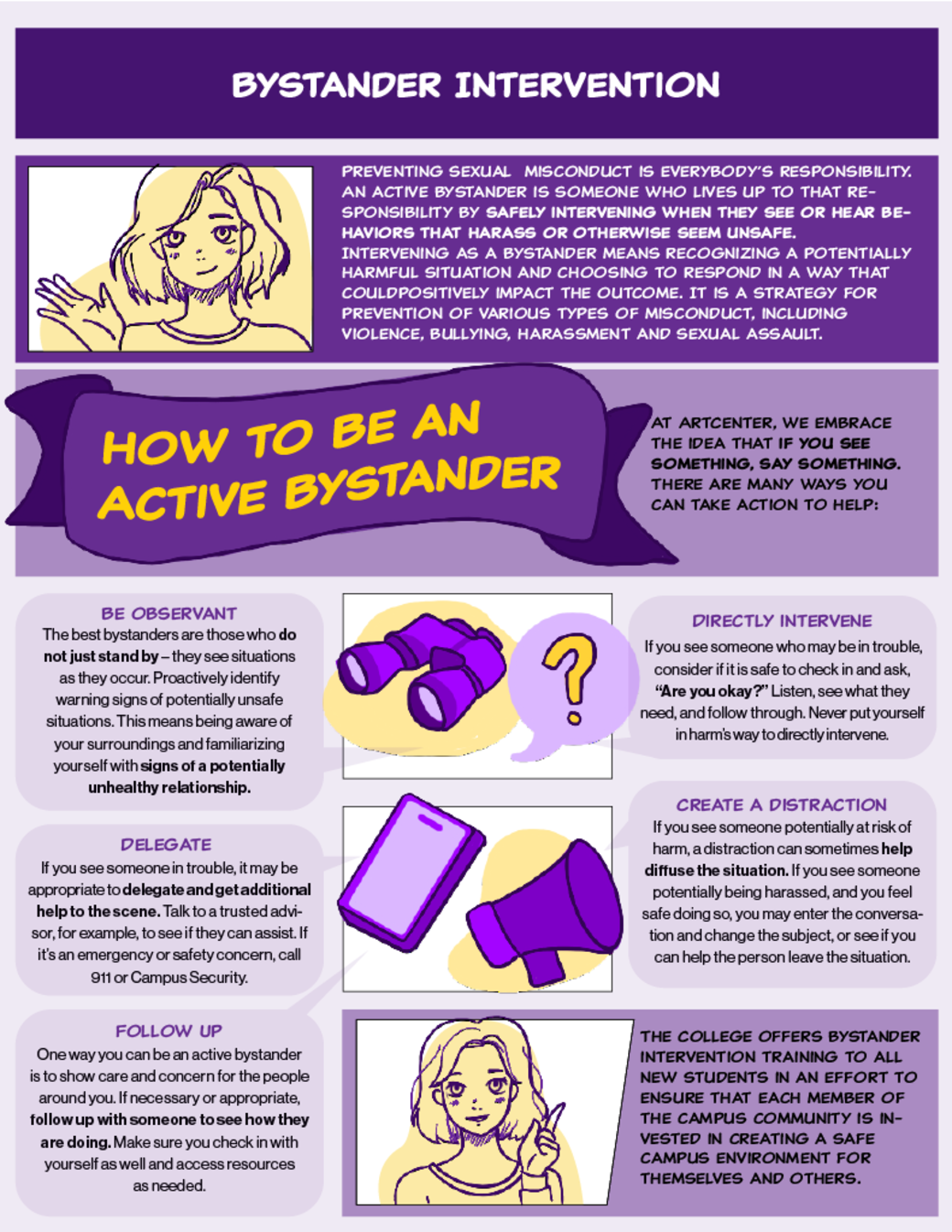Sexual Misconduct and Title IX
Education and Bystander Intervention
Community Education
ArtCenter is committed to maintaining an inclusive community that values diversity and fosters acceptance and mutual respect. The College engages in several ongoing efforts to educate the community about the prevalence and prevention of sexual harassment and sexual violence. Students and employees are encouraged to participate in workshops and educational events hosted by the Title IX Office. Prevention programs and educational sessions about the College’s relevant policies and support resources are included as part of incoming student and new employee orientation. In addition, all employees must complete online training on a regular basis.
As a part of our commitment to educating the ArtCenter community, in 2022, the Title IX office conducted a Campus Climate Survey that surveyed students on their perception of a number of topics including Bystander Intervention, How to Report, and their overall awareness of Title IX policies. This information will be used to help the Title IX office design our educational efforts to address the exact needs of our community. If you would like to read the Summary Report of the survey that information can be found here.
Bystander Intervention

Request A Workshop
The Title IX Office is thrilled to offer the community a variety of educational workshops that can be tailored for departments, student organizations, or other audiences. If you would like to request that a member of the Title IX Office hosts a workshop or brief educational presentation for your department or group, feel free to email brittany.raygoza@artcenter.edu. Examples of possible workshop or presentation topics include:
- Understanding Affirmative Consent
- Defining and Respecting Digital Consent
- What is Title IX?
- Setting and Communicating Boundaries
- Where’s the Line: Sexual Harassment
- Building Healthy Relationships
- Bystander Intervention
- Understanding, Responding to, and Preventing Gender-Based Microaggressions
- Sexual Misconduct Prevention and Response 101: What is Sexual Misconduct?
- Sexual Misconduct Prevention and Response 102: Mandated Reporting and Responding to Disclosures
- Supporting a Friend Involved in an Investigation
- History of Sexual Harassment
If there is a workshop that you feel would benefit your group, but it is not listed above, please feel free to include that information in your email. The Title IX Office will work with you to bring relevant, tailored information to your team.
Safety Tips

